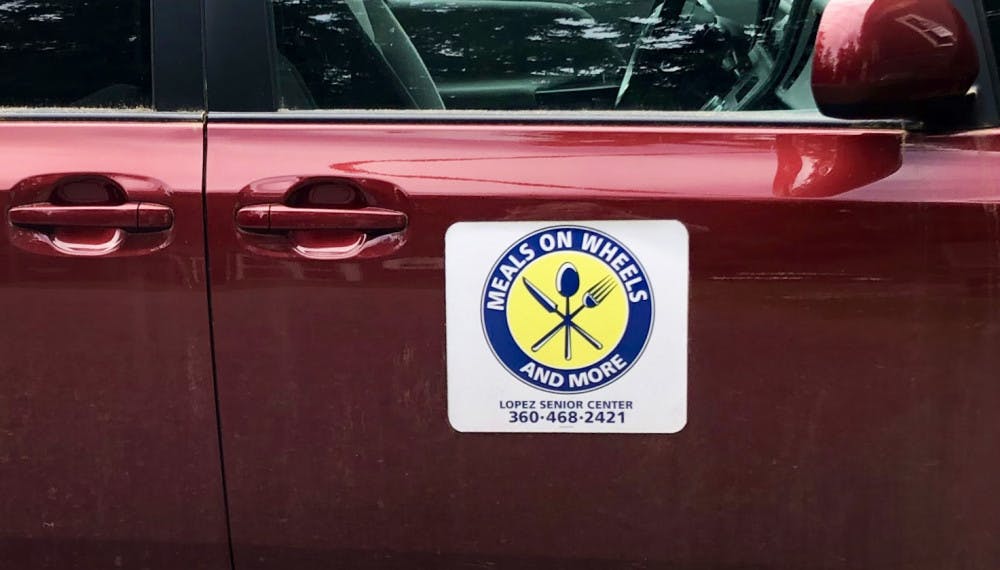
Meals on Wheels and More and other nonprofits are providing meal packages to both senior and low-income Bellingham residents.
Before COVID-19, Meals on Wheels and More was providing 8,000 meals per month, executive director Julie Meyers said. The global pandemic has caused a surge in demand, reaching over 13,000 meals provided to families last week, Meyers said.
“One hundred new people signed up for Meals on Wheels toward the end of March,” Meyers said. “[The surge] has been pretty huge and stable for a few weeks.”
According to Meyers, Meals on Wheels and More provides donation-based meals to people over 60 years old. It is the largest nonprofit on the Whatcom Council on Aging.
The program provides home-delivered meals to the homebound and isolated seniors, and has a pickup option for seniors with the ability to drive, Meyers said.
The home-delivered meals are delivered throughout the week, with 20 volunteers dropping them off, Meyers said. Alternatively, the pickup meals at senior centers provide a whole weeks’ worth of frozen meals, including one fresh meal for that day, Meyers said.
“We deliver to 400 people a week in Whatcom County,” Meyers said. “350 people utilize the pickup option.”
In addition to Meals on Wheels and More’s influx of meals, they have also been including special amenities in their meal packages like toilet paper, extra produce and pet food acquired from a collaboration with the Whatcom Humane Society, Meyers said.
According to Meyers, the nonprofit buys their supply using donations from many contributors, including individuals in the community.
“We get our funding from grants, fundraisers and Subaru,” Meyers said. “We also get federal emergency funding which has helped with the increase in meals.”
The Bellingham Food Bank is the distribution center for 11 food banks throughout Washington, distributing to food pantries and meal programs, food bank executive director Mike Cohen said.
“We deliver to 1,000 households per week,” Cohen said. “The food bank was really busy before [COVID-19], it’s up a little now. We’ve worked really hard to purchase and secure our food during the pandemic.”
The food bank’s funding comes from local individuals, foundations, local businesses and the federal and state government, Cohen said.
As the community collaborates to maintain social services, COVID-19 has instigated small relief efforts by Bellingham residents that have grown expansively.
COVID-19 Community Helpers, founded by Sandi Heinrich, is a group of healthy helpers throughout different Washington counties that assist low-income residents who are in need of bagged meals, resources and financial assistance, Heinrich said.
According to Heinrich, the wide-spread organization began with picking up prescriptions for people who couldn’t leave their homes.
“We’ve taken the low-income Senior Housing Authority under our wing,” Heinrich said. “Their food was usually stocked by its residents, however the residents couldn’t go outside, so the manager called us [to assist them]. That’s how this all started.”
The COVID-19 Community Helpers receive donations through a nonprofit agency called Fellowship of Messengers based in Lynden, Heinrich said. Through the agency, the money is used to pay for prescriptions, small financial strains, gas and phone cards, Heinrich said.
“It’s a full-time job,” Heinrich said. “I work 13-15 hours a day.”
Community members have reached out for help more than once, so the Healthy Helpers use their resources to assist impoverished Bellingham residents during and after the pandemic, Heinrich said.
“We have a team that deliberates how to help the financially struggling with long-term assistance,” Heinrich said.





